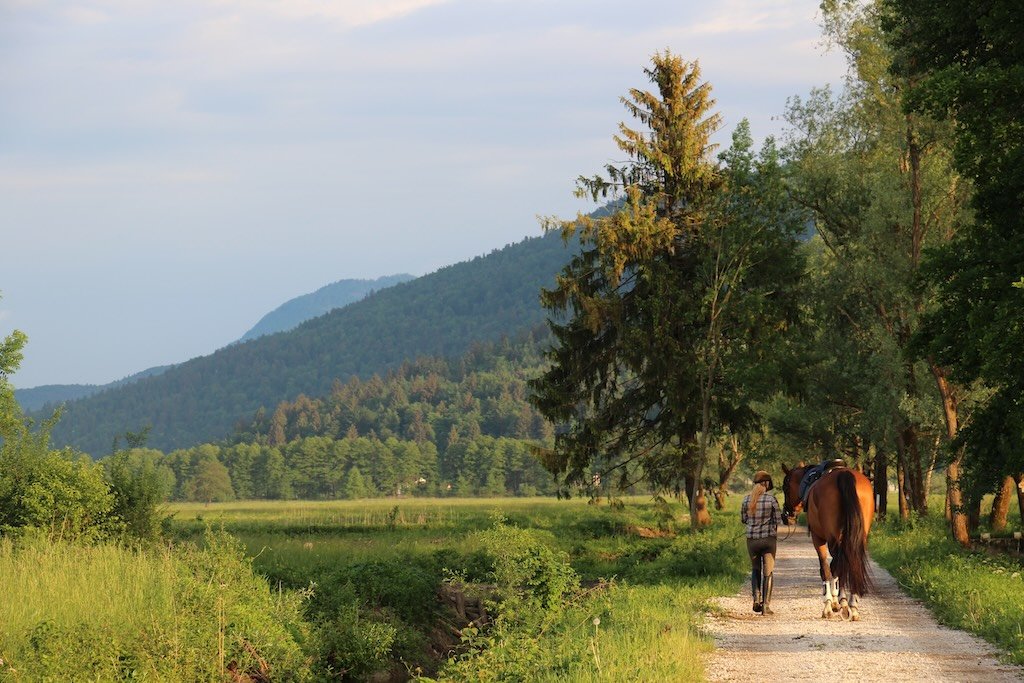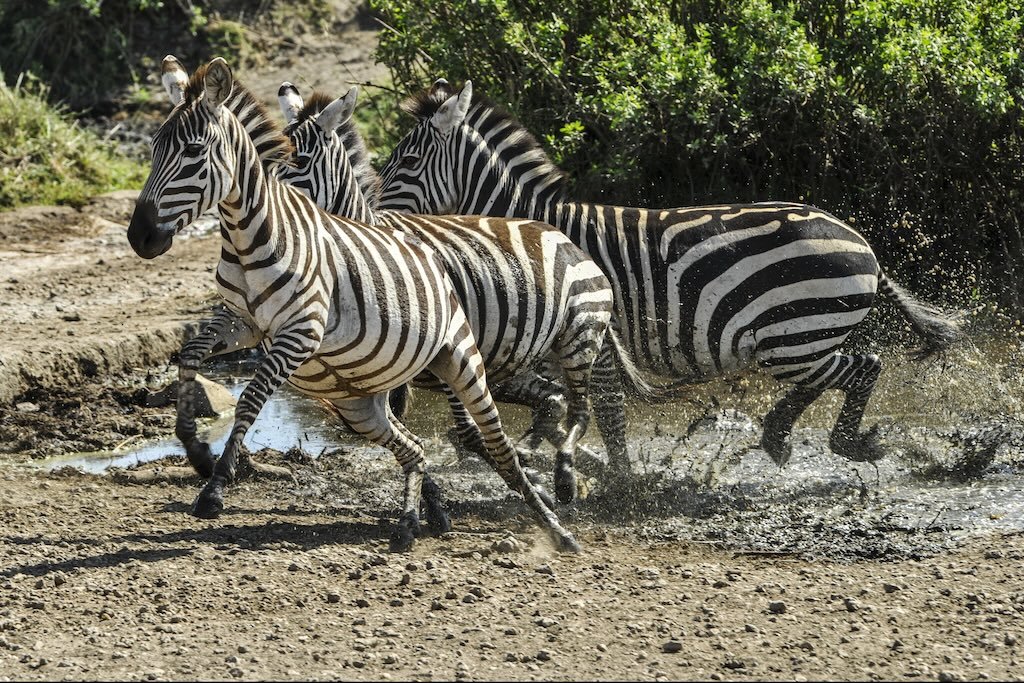Strategies for mitigating stress
Stress is extremely detrimental to horses, which is why we need to do everything we can to mitigate its negative effects. While there are things we can’t change, there are some small changes we can make regardless of our situation.
If your horse enjoys trail rides or walks in nature, let him occasionally choose that over arena training.
By now pretty much everyone knows just how detrimental chronic stress can be. It can mess up our digestion, prevent us from getting better at athletic pursuits and even mess with the functioning of our immune system. When it comes to horses, it's no different. Some research suggests that up to 90 % of ridden horses suffer from ulcers. 90%! Let that sink in for a bit. Seeing as how stress plays a big role in ulcer risk, it's safe to conclude that a lot of horses are under a lot of stress. While they might not seem stressful, things like traveling to shows, having an empty stomach for hours on end, a constantly changing schedule or a busy barn can be a source of chronic stress in horses. Some things we can change, some we can't, but we should always strive for reducing chronic stress in our horses.
Stress is generally a good thing in acute situations, but when it becomes chronic, it can wreak havoc.
Predictability plays a huge role in how stressful one perceives an event. A lab rat, given random electroshocks will be less stressed if the shocks are preceded by a red light. Knowing a stressful event is coming, makes the event less stressful. How can we apply this to horses? For one, establishing a routine will most likely act towards mitigating stress. Riding your horse at the same time every day might be a good idea. For those who can't do 24/7 access to hay, sticking to a strict feeding schedule will work better than keeping the horses guessing when they're going to get their next meal.
Next, a sense of control is another thing that plays a role in mitigating stress. If an animal feels like it has some control over the stressful event, that makes the event less stressful. Now obviously, when it comes to training, it's hard to just let the horse make all the decisions, but it will help if you can find ways where your horse can choose at least some aspects of it. If you know your horse enjoys trail rides, allow him to suggest a trail ride instead of an arena training from time to time. Or maybe allow him to choose where he wants to get tacked up. A lot of horses will let you know their preferences if they are allowed to express them. Giving them a sense of agency will not only reduce chronic stress, it will also deepen the bond between horse and rider.
From a stress management perspective, using gadgets to prevent the horse from exhibiting stereotypical behaviours, does more harm than good.
The last one is tricky. In the lab, rats that were able to gnaw on a piece of wood following a stressful event, showed less signs of chronic stress. In horses this translates to stereotypical behaviours like cribbing or stall walking. Generally, people try to punish horses for exhibiting these »vices«, but in doing so they're just magnifying the stress. If your horse is showing stereotypical behaviours, don't punish them for it, but do take it as a severe red flag. It means your horse is under a lot of stress and you need to make some big changes.


